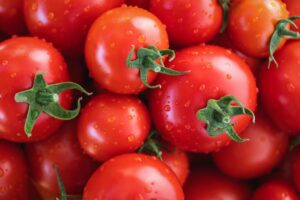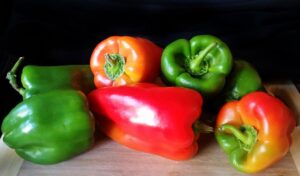
Damaging virus detected in Australia
Australia’s agriculture industry is on high alert following the discovery of the tomato brown rugose fruit virus (ToBRFV) in South Australia’s Adelaide Plains.
Detected in August 2024, this virus threatens to inflict severe economic damage on the nation’s horticulture sector, potentially costing millions of dollars annually.
ToBRFV targets key crops including tomatoes and capsicums which are significant to Australia’s domestic markets and export trade. Fresh tomatoes alone are valued at over $500 million annually in Australia, with production nurseries playing a vital role in growing and supplying tomato seedlings.
John McDonald, Director of Research, Development, Extension and Biosecurity at Greenlife Industry Australia (GIA), warned of the virus’s widespread implications.
“The detection of ToBRFV in a major food-producing area highlights the vulnerability of our horticulture sector. This virus poses a direct threat to the production of tomatoes and capsicums, two staples in Australian nursery and greenlife sector,” Mr McDonald said.
The virus spreads rapidly through infected seeds, tools, and plant material, putting both large-scale commercial nurseries and home gardens at risk. Regions heavily reliant on tomato and capsicum production, including South Australia, Victoria, Queensland, and New South Wales, are especially vulnerable.
“The economic impact of a virus outbreak affecting tomatoes and capsicums could be enormous,” Mr McDonald said.
“Disruption to production nurseries and the broader supply chain could lead to significant crop losses, higher prices, and shortages in both local and national markets.”

To help mitigate the risk to Australia, GIA is urging production nurseries to adopt more stringent biosecurity measures than usual, including enhanced hygiene, frequent monitoring, safely sourcing seeds and plant material, and establishing and maintaining controlled access between plant zones to reduce cross-contamination.
Joanna Cave, CEO of Greenlife Industry Australia, highlighted the urgency of addressing the threat.
“This virus has the potential to significantly impact the production of tomatoes and capsicums, affecting both the supply chain and market stability,” Ms Cave said.
“Strong biosecurity measures are essential to protect the industry and ensure a steady supply of these critical crops.”
A widespread outbreak of ToBRFV could lead to export restrictions, quarantine measures, and a loss of consumer confidence, affecting both domestic and international markets.
“GIA is actively collaborating with biosecurity agencies to manage the threat and provide guidance to nurseries. By taking precautionary steps now, we can safeguard our operations and maintain the integrity of Australia’s nursery and greenlife sector,” Ms Cave said.
For more information on protecting against ToBRFV, visit www.pestid.com.au
